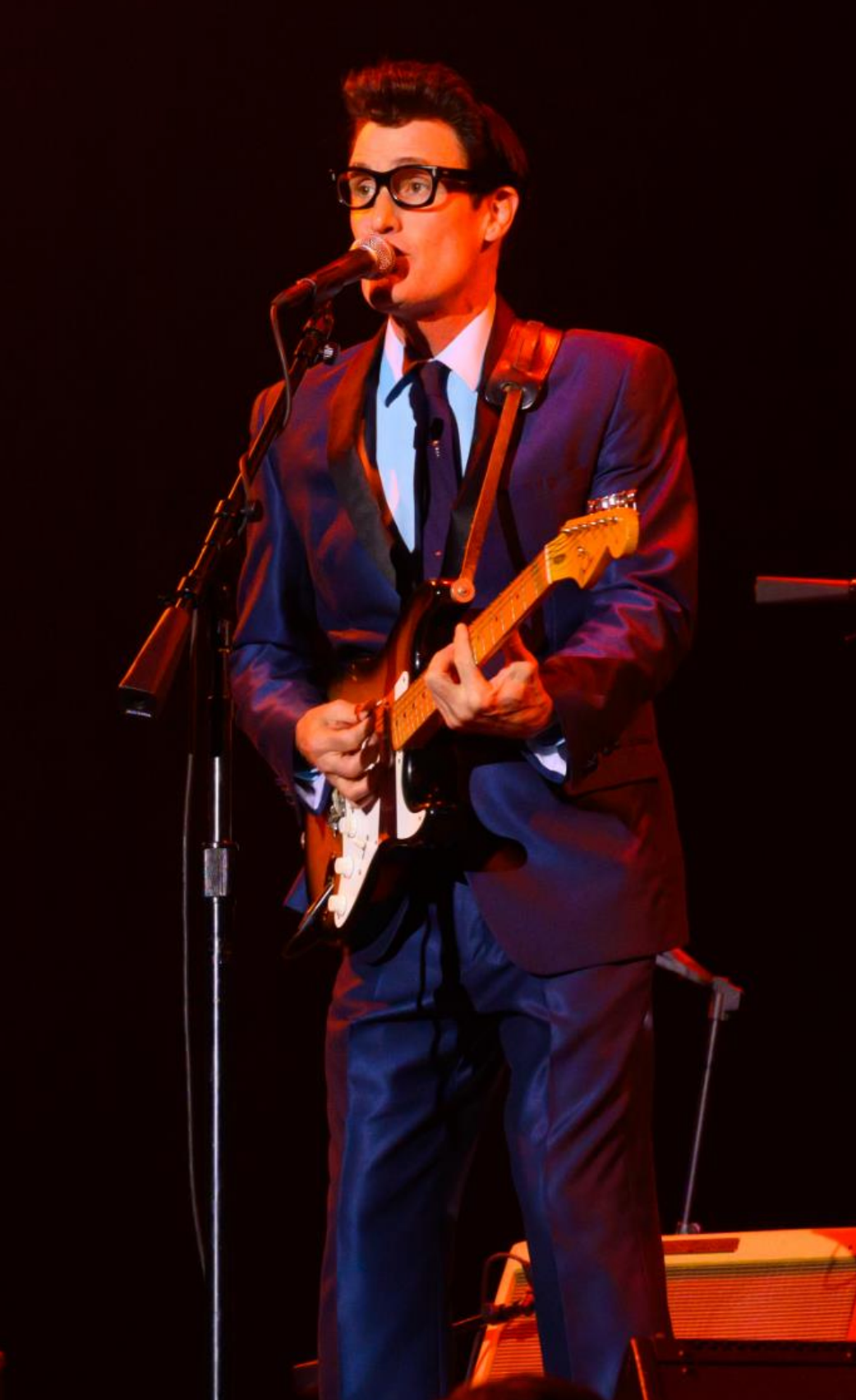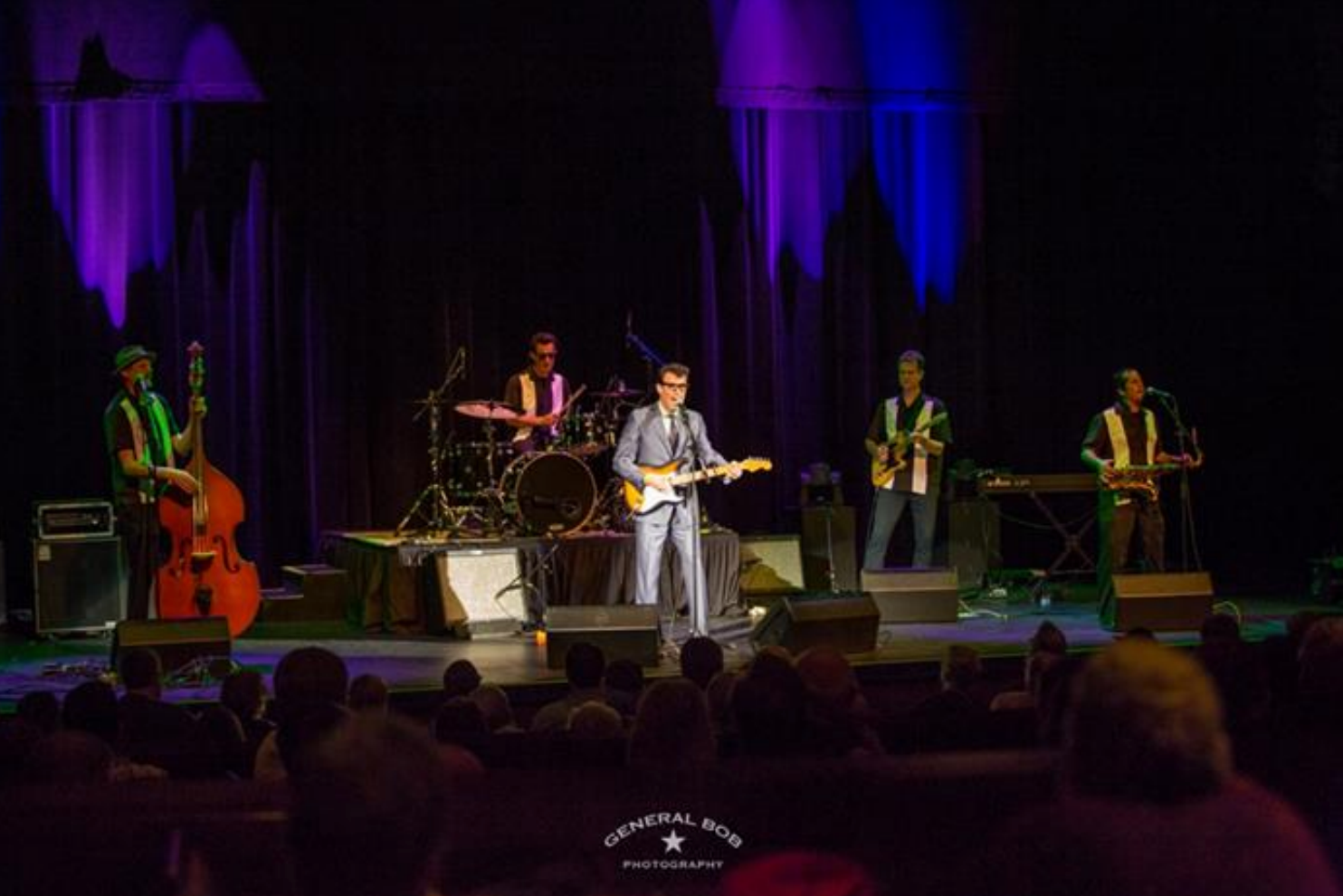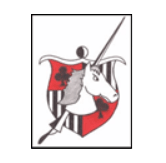Up Close with John Mueller
(BY DICK STEWART – EDITOR)

DS: Hello John. I'm looking forward to this interview and your standout contributions. Where were you born and what is your age? (All my high-profile interviewees always gave me a date of birth.)
JM: Well, shucks, I try to present the illusion for my show that I'm still a young man so, I don't ever give out my real age if that's okay with you, lol? I am a child of the 1960's though, that much I'll admit.
DS: Did you grow up in a neighborhood, or in the country on a farm or ranch?
JM: I grew up in Wichita, Kansas in a new burgeoning middle-class neighborhood. $13,000 back then for a brand new home! We weren't but maybe 10 miles away from some farmland though. Wichita at the time was the leader in aircraft production with Cessna, Learjet, Boeing, and Beechcraft manufacturing all there. I believe in fact that the plane Buddy Holly chartered in Mason City, Iowa was a Beechcraft Bonanza made in Wichita, KS. It was a good city to raise kids. Very similar to Lubbock, TX in that it was flat, dusty, and windy quite a lot.
DS: How many brothers and sisters do you have and what are their names? (You can provide their ages if you'd like.)
JM: I have two brothers and one sister. My brother George played lead guitar for years in my "Winter Dance Party" show. He was a major influence for me in music, an incredible guitar player. They are all seven to eleven years older than me. I came along late in my parents’ life, what you'd call a "happy accident" if you will. The good thing about that was I got all of their hand-me-down records which were Little Richard, Jerry Lee Lewis, Buddy Holly, Beach Boys, and the Beatles. This solidified my interest in the roots of rock and roll music. My high school buddies kind of made fun of me for liking this music when they were all into late 1970's music at the time. They came around though when the movies, American Graffiti and The Buddy Holly Story debuted. Also, the TV show, Happy Days added to the resurgence of interest in the 1950's.
DS: What are the names of your parents and their occupations?
JM: My mother's name was Marjorie, and my father was Milton. Mom was an extraordinary artist, creating a ton of paintings while raising four kids. Amazingly talented. My father was an insurance policy underwriter, but he was a piano player foremost. He realized at some point that making a living as a musician would be tough to raise a family, so he got involved with insurance. He always played the piano at home though and we recorded quite a bit of him playing. They are some of my most cherished possessions. Great growing up with so much music and art around me.
DS: What was your greatest enjoyment while you were a tot? Playing games like kick the can and hide and seek, listening to music, or exploring your surroundings in the country?
JM: My greatest enjoyment was listening to music. This was back when you'd get an album, lay down on the couch, and read it from cover to cover while listening to it. The whole thing (a vinyl record) was like a piece of art. I miss that today. I'll never forget hanging in the basement listening to music, so powerful. As a tot, the first time I heard "Puff the Magic Dragon," it just filled me with so much emotion. I didn't understand why Jackie Paper no longer wanted to play with Puff, lol.
DS: Did you get in many rumbles in school because of your “Greaser” affiliation?
JM: Yes! Quite a few. My buddies and I made the mistake of going to a hamburger joint that was on the West side of town where West High School was located. Someone recognized us from North High School, and they started beating chains on my poor buddy's car. We got out of there just in the nick of time though. Other times I had some jock trying to fight me because he thought I was trying to get his girl. He was so mistaken. She was ugly to me! Most high school fights are over the dumbest things.
DS: Describe your first automobile. What brand was it, and did you customize it in any manner? When I was a teen, 1955 and 1956 Fords and Chevrolets, lowered in the back with six-inch shackles, and colored pink (pink was in big time), 8-cylinders, and with two glass-pack mufflers that produced a Harley motorcycle sound. I got a lot of tickets for roar. What say you, compadre?
JM: Ah yes, glass packs, loved them. My parents gave me a new set of headers for Christmas once! Boy, did they try hard to please me. I got a used 66 Chevy Malibu; it was probably about 12 years old when I got it. I took it to my auto mechanics class in high school. The teacher had access to a truck that was wrecked but had a 350 engine in it, so, I pulled the 283 out of the Malibu then put in the 350 and jacked it up with headers, Edelbrock manifold, Holley four-barrel carb and other goodies that made it quite a beast.
DS: You mentioned that you like the Happy Days series. When I was a teenager, we thought that the motorcyclists were ex-navy men with a tattoo of an anchor on their arms, and we avoided them. Were you aware of that?
JM: Ha. No, wasn't aware of that. "Happy Days" was of course kind of a silly show for the most part, but it was fun entertainment and it made me wish I was raised in that era as did "American Graffiti." Loved that movie, still do.
DS: When did you make your first recording, and was it music that you wrote or covers? And who were the musicians that were involved in the recording? Have you ever had problems with musicians coming to rehearsals or gigs drunk?
JM: My first recording was on a 4-track cassette tape recorder my brother George gave me for a Christmas present. Loved that thing, still have it. I did an original song called, "C'mon Little Judy" which was pretty primitive but rocked, nonetheless. It was just me on the recording, and I think my brother George did a solo on it too. I've had a few instances where either alcohol or drugs were affecting former band members. I didn't tolerate much of that. I always told everyone, drink after the gig not before.
DS: How many tours have you made to the Winter Dance Party, and what was your pay, and what is your approximate charge for a three-hour gig including travel expenses?
JM: We tour every year now, all across the U.S., heading to Pennsylvania as I write this. We've been doing shows for close to 25 years. If you mean how many trips to the Surf Ballroom for the annual Winter Dance Party they do, we've been there many, many times, I'd say at least 10 times. Pay was very minimal at the beginning. Now, it is much, much better. I'm not allowed to quote a price, our agency rep tells me, as there are too many varying factors, location, routing, time of week, etc. etc.
DS: What about the Mexican American and African American students in your school. Did either group of minorities belong to a gang so to speak, and were they picked on by the Anglo student population? Did the Baptist religion rule?
JM: No gangs in our school. There were hoodlums and loser types but no gangs of any race or creed. I got along great with all races. Had many over for birthday parties and what not. We grew up as Methodists, not sure if Baptism was that strong in Wichita, KS or not. Seemed like quite a mix of religions to my recall.
DS: Did you meet your first wife in high school, and are you still married to her? How many sons and/or daughters do you have and what are their names?
JM: I had a high school sweetheart, but we parted ways when I left Wichita. Met my first wife (and only wife so far, lol) at a casino we were booked at in Iowa. We had a great time for about 5 years then things fell apart, largely due to my being gone all the time doing shows. I think she got very lonely. We didn't have any kids and I've been a single guy for a few years now.
DS: When did you meet Bill Griggs? Did he play a role in the success of your band?
JM: I met Bill back in the late 90’s. I knew of him prior to that as I’d read quite a few of his publications. He definitely played a role in my success as his whole “Day by Day” series where he showed exactly what and where Buddy was during his brief life was an invaluable research tool. He got to see me perform in Lubbock too and we became friends from that point on.
DS: Is the name of your band officially the Winter Dance Party band?
JM: Yes indeed

DS: Are you or have you signed with a record label, or do you do your own recordings and engineering in your own studio? What do you presently have on the market in the way of CD or vinyl albums?
JM: Never signed with a label but never really went that route or pursued. Kind of preferred doing things independently and on my own time frame. I’ve done three albums now of my original music recorded at various studios in Los Angeles and one at my own home studio. My best selling or should I say “streamed” songs are “Hey Buddy, a tribute to Buddy Holly,” “Andrea Doria,” a song about the fateful ship that sank in 1956 and “Live Like Flynn” a song about Errol Flynn. All my music is available at johnmuellermusic.com.
DS: George Tomsco, guitarist for the Fireballs, is one of my mentors (the other, the Ventures) and I did a concert together in a nightclub in Albuquerque with George, which was a great honor. He’s a master at mute picking. Are some of his band’s instrumentals on your play list?
JM: Love George and his work. We actually had him and Stan (bass player) of the Fireballs play with us at the Riverside Ballroom in Green Bay, WI one year. That venue is the second to last place Buddy, Ritchie and the Big Bopper played at and is still operating today. Have a few of the Fireballs songs on my playlists. Great stuff.
DS: Have you ever had any bad experiences with booking agencies, record labels, or promoters in not following through with their promises, et al.?
JM: Yeah, for sure. One agent from the past told us we were getting paid X amount of dollars for a NYE show, then the client at the casino we were hired to play left a copy of the contract in the green room, and I saw where my agent had “bought and sold” us; meaning he was charging them double what we were getting and pocketing the rest!
One time a venue in South Dakota hired some farmers to run the sound for our show! They literally had no idea what they were doing. It was disastrous, lol.
I’ve been pretty lucky though, not too many bad experiences. Have great representation now with Bicoastal Productions. They’re the best in the business.
DS: I’m sure your ax is a Stratocaster, right? How about your band members? What are their names, and does the bassist play a Jazz Fender base?
JM: Yes, I play a 1957 Fender reissue Strat like Buddy’s. Current band members are Dave Johnson on drums, Craig Harbaugh on sax, Buzz Campbell on lead guitar, and Ed Maxwell on bass. He plays upright bass and various electric ones.
DS: Have you had any criticism from Buddy Holly worshipers for covering Buddy Holly in the manner that you do?
JM: Not really, though I had one guy leave a comment on YouTube that my jawline was “lantern sized.” That cracked me up, very funny. I did come to find that there are some rabid Buddy fans out there, and they get very contentious as to who is the bigger fan or who has the most memorabilia.
DS: Have you ever had any fans or bad characters rush the stage during a performance?
JM: Yes, had an incident in a small town in Wisconsin where a fan jumped up on stage and proceeded to give a long boring (and somewhat drunken) speech about how his second cousin knew the farmer whose land the plane crashed on, and he went on and on. We had to kind of shoo him offstage, lol.
DS: What was your best gig of your career and why?
JM: Definitely when we did our symphony version of the show playing with the Philly Pops at the Verizon Center in Philadelphia with Grammy winner Peter Nero conducting. Four nights in a row with huge audiences and a 75-piece orchestra behind us. Magical.
DS: What was your worst gig of your career and why?
JM: lol, there’s been a few but one that sticks out was an outdoor one where we were booked to play at a tennis tournament in Indian Wells, CA. They stuck us in a poorly lit outdoor area and nobody from the tennis tournament watched us, they were more interested in eating and drinking. I don’t know why they had anyone booked for entertainment.
DS: Have you set a date for retirement?
JM: Nah, but maybe sometime in 2026 or 2027. Who knows? I’ll keep going till the interest in the music is still strong or my knees give out, lol.
DS: Do you have a good teen and young adult appeal?
JM: Hmmm, not sure there, but I’d say this music sure keeps us all young at heart.
DS: Thank you, John Mueller, for sharing your thoughts with me and helping to keep the music alive. I wish you continued incredible success, compadre.
JM: Cheers, it was fun.
If you enjoyed this featured interview, then I ask for your help. The approximate cost to write, arrange, and post each monthly issue of TLM is more than $400. The Lance Monthly, which was born in 1965 in Albuquerque, NM, was very active and successful monetarily until a few years before 2016 when I was inducted into the New Mexico Music Hall of Fame. I put TLM aside and began to devote my time writing books about the birth and the early rock-and-roll songs and guitar instrumentals that defined the roots of rock-and-roll (rvstewartproductions.com). The book, Rock and Roll during A Time of Innocence focuses on Albuquerque, NM.
Also, just above the pay tabs at the bottom, write in caps, PLEASE HELP MONETARILY OR SCROLL DOWN THIS PAGE AND PURCHASE ONE OF STEWART'S BOOKS. THEY'RE GREAT READS!
Donate $5
Donate $25
Donate $50
Donate $100
Donate $250
Any Amount
